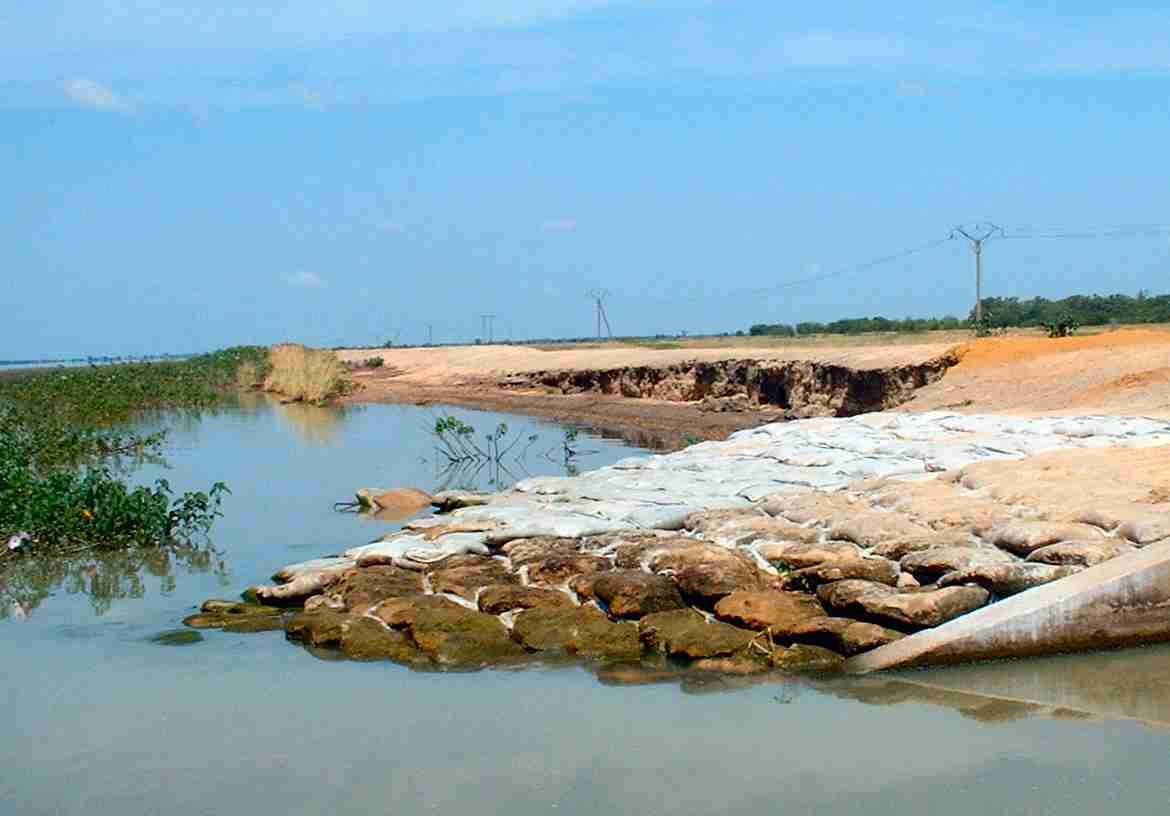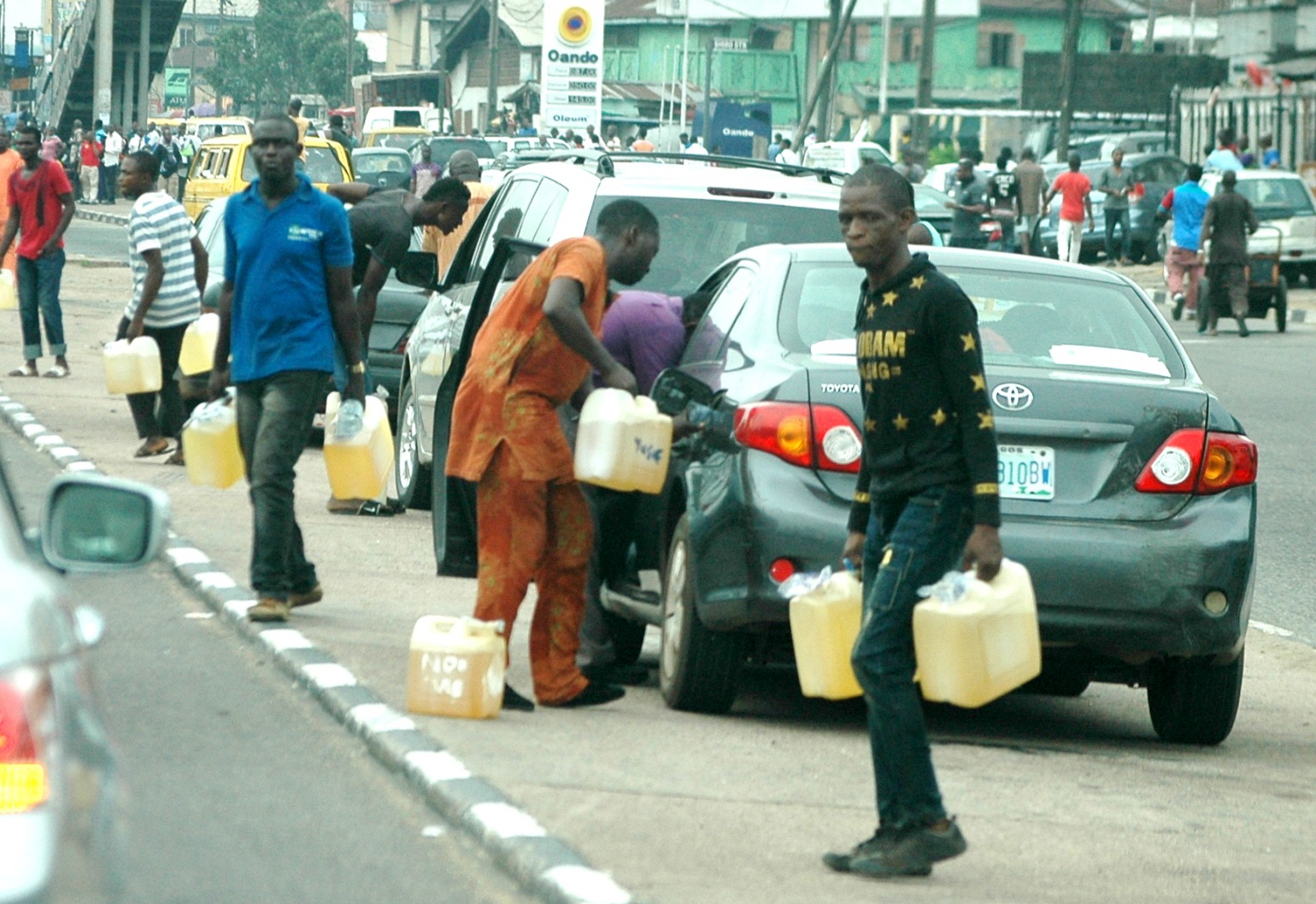By Ahmad Salkida and Abubakar Kundiri
If you had to choose the fate of Lake Chad, which would you prefer: an oil and gas rich region or a rich eco-diversity driving prosperity through agribusiness? President-elect, Muhammad Buhari, has dropped the hint that his administration would re-open oil prospecting in the Lake Chad Basin. On a face value, this sounds wise and reassuring to the political elites from the north of the country who not only treasure the allure of petro-wealth but love the idea that oil bragging right could also be theirs.
Lake Chad shoreline had an elevation of about 286 metres (938 ft) above sea level and it had an area of more than 26,000 square kilometres (10,000 sq miles), making its surface the fourth largest in Africa, bigger than countries like Israel and Kuwait way back in 1963. Over the years, agriculture have comprised productive activities ranging from livestock to crop cultivations. Farmers produce food, fabrics and wood. From their array of value chain such as dairy products, fish, meat, grain and cotton agric business bring to the table a wide array of employment opportunities not open to any other economic sector.
Unfortunately, the Lake has not only shrunk to over 90% from 1963 to date but it now plays host to the infamous Boko Haram insurgency that has killed, maimed and displaced hundreds of thousands of the lake’s inhabitants. The United Nations Environment Programme (UNEP) and the Lake Chad Basin Commission (LCBC or CBLT in French) maintain that deficit in rainfall, drought, inefficient damming and irrigation methods are mainly responsible for the shrinking lake.
The discoveries of oil in Niger Republic, especially, in the Doba Basin (part of Chad Basin), raises hope of similar discovery in the Nigerian sector of the Chad Basin, and when geologists state with some measure of authority that the Borno Basin and the Benue Trough within Nigeria are all one part of a series of cretaceous and inter rift basins, it leads to the conclusion that discovery of oil and gas was a matter of time. With oil wealth envisaged by all in the region, attention shifted from investments in agriculture in the Lake Chad region to oil exploration.
Advertisement
According to Solomon Abaa, a leading geologist and former chair Professor of the Petroleum Trust Development Fund (PTDF) center in the University of Maiduguri, Chad Basin constitutes an extensive stretch of gas shores in Nigeria, “with some 160 trillion cubic feet.” Several exploration activities in Lake Chad indicated huge deposits of oil and gas. But globally trending interest in alternative energy sourcing gradually diminished the prospects of oil as a sustainable source of revenue and wealth for nations. Also, corruption, neglect and resulting conflicts have taken their toll as it is the case in the Niger-Delta region of Nigeria.
While oil revenue remains a strong driver of aggravated corruption in public places, agribusiness is totally different. Agribusiness and eco-diversity as a policy focus for the coming administration will not only create wealth it will ensure that the wealth so created domiciles with the people. It ensures that the people are empowered. It ensures that leakages associated with official transactions do not constitute the face of governance in that region of the country. It ensures that employment opportunities are escalated and that other sectors such as tourism are handed easy triggers for growth.
Lake Chad that covers 8 percent of the surface area of the African continent is stretched around one of the most troubled and poorest parts of the world. The shrinkage of the Lake has been driven by both global and local causes: climate change and vastly increased competing demands on the lake. The depletion of Lake Chad poses a pressing challenge to irrigated agriculture which is an important water consumer and the source of livelihoods for the overwhelming majority of the population. Between 75 and 80 percent of the farming population consists of traditional small holders, producing mainly staple foods for household consumption and with relatively marginal connections to market.
Advertisement
The problem of Lake Chad is actually manifold, ranging from the variability of the hydrological regime to the dramatic decrease in freshwater availability. The relatively high rating of water pollution mainly due to commercial cotton and rice production known to use large quantities of agro-chemicals. Other problems include the low viability of biological resources relating to the inability of the regenerative rates of plant and animal resources to keep pace with exploitation which on its own has aggravated loss of biodiversity as well as damages to the ecosystem.
The prospects for saving Lake Chad does not only brighten the future of over 30 million people that depend on the lake but it reduces poverty which is one of the biggest source of conflict and reasons for the significant increase in radicalism in the Sahel. As part of an effort to address the current challenges in the Basin, a seminar “Adaptive Water Management in the Lake Chad Basin: Addressing Current Challenges and Adapting to Future Needs,” was convened in 2009 by the Lake Chad Basin Commission (LCBC) and the Food and Agriculture Organization of the United Nations (FAO) in Stockholm Germany.
The seminar attended by more than 50 participants representing riparian countries, donors and other institutes, identified the causes of the current environmental degradation to be mainly global climate change, unsustainable policy decisions, lack of good policy and lack of political will especially on the part of member states of the LCBC to drive development and change. There are eight member governments, mainly Cameroon, Chad, Niger, Nigeria, – the Central African Republic, Algeria Libya and Sudan – are chosen for their proximity to the Lake Chad Basin.
However poor coordination by member nations of the LCBC, have been attributed to the continual degradation of the Lake Chad Basin. The Commission has put on the drawing board a plan to replenish the lake by building a dam and 60 miles of canals to pump water uphill from the Congo River to the Chari River and then on to Lake Chad. The replenishment project “will be the first of its kind in Africa,” says Martin Gbafolo, the LCBC’s director of water resources and environment. Efforts, however, are still on raising fund to pay for the feasibility study.
Advertisement
Already the World Bank is providing $10.6 million for a project to reverse land and water degradation in parts of the lake. In addition, the LCBC is educating livestock herders on gaining access to grazing and watering areas. Water users are taught efficient water-utilization methods and fishermen more appropriate techniques for catching fish. Scientists have however insisted that attention must be paid to the final quality of the water resulting from mixing the waters of the Lake Chad Basin and the Oubangui, as well as the effect this will have on the ecosystems.
But investments in agriculture in the Lake has the potentials to transform the area to one of biggest eco and bio-diversity hub in the world. For example, the world’s most formidable economies are those with agribusiness at the foundation of the economic tree. Such countries include United States of America, Israel, and several EU countries.
Whether it is oil exploration or water transfer in the Lake Chad, both projects come with huge cost to the ecosystem but the former is the lesser evil if conservation mechanism are adopted and security in the troubled region is taken seriously. The Lake Chad Vision for 2025 highlighted a number of important issues deduced from the existing situation in the lake’s drainage basin. The document identified three major objectives; namely, (i) maintenance of Lake Chad and other wetlands of the region at sustainable levels for the economic security of the freshwater ecosystem resources, sustained biodiversity and aquatic resources of the basin and their equitable use, the alleviation of poverty; (ii) acceptance of responsibilities for freshwater, ecosystem as well as biodiversity conservation and judicious integrated river basin management by regional and national authorities; and (iii) equitable access by Member States to safe and adequate water resources to meet their needs and rights
Salkida is a freelance journalist/conflict analyst and Kundiri is a Professor of soil and Water Management.
Advertisement
2 comments







Your comment..Agroeconomic is the best in chad basin not oil
@ Modu Zannah I concur, Agrobusinesses would best suit the the Basin Instead of Expploration considering our development stage.